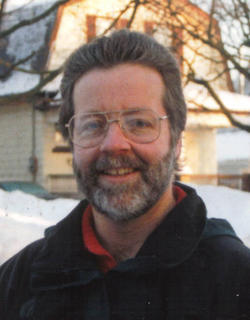 At a time in some unspecified distant future after a nuclear war has left much of the world a barren, poisonous wasteland, David Strorm, Sophie Wender and Rosalind Morton live in Waknuk, a small agriculturally focused community in central Labrador. With modern technology yet to be re-invented, the strict religious fundamental beliefs of this still primitive community label the apocalypse as "Tribulation", a punishment visited by God upon the "old people" for their sins. Genetic variations and mutations, now commonplace (no doubt as a result of higher worldwide radiation levels), are seen as evil. "Deviant" crops and animals are burnt. Humans with even the most minor mutations from their highest religious ideal, a physical norm which the community calls God's "True Image", are labeled as blasphemies and are killed outright or banished to eke out their future existence in a wildly savage outlying area called "The Fringes".
At a time in some unspecified distant future after a nuclear war has left much of the world a barren, poisonous wasteland, David Strorm, Sophie Wender and Rosalind Morton live in Waknuk, a small agriculturally focused community in central Labrador. With modern technology yet to be re-invented, the strict religious fundamental beliefs of this still primitive community label the apocalypse as "Tribulation", a punishment visited by God upon the "old people" for their sins. Genetic variations and mutations, now commonplace (no doubt as a result of higher worldwide radiation levels), are seen as evil. "Deviant" crops and animals are burnt. Humans with even the most minor mutations from their highest religious ideal, a physical norm which the community calls God's "True Image", are labeled as blasphemies and are killed outright or banished to eke out their future existence in a wildly savage outlying area called "The Fringes".When the community discovers that David and Rosalind together with a small group of other young people have developed the ability to communicate telepathically, they are forced to flee for their lives. They are re-united with their friend Sophie, earlier banished to the Fringes for the disgusting aberration of having six toes instead of the normal five. David's younger sister, Petra, able to communicate her thoughts with a power and at a distance far beyond any of the other children discovers the presence of others like them in a distant community who mount a campaign to rescue the children from their persecutors.
In "The Chrysalids", John Wyndham has mounted a vicious attack on religious fundamentalism, bigotry, intolerance and narrow-mindedness. Analytical readers will be mindful of the irony in the closing chapters as it is clear that the more advanced community is as repressive and intolerant as the community from which the children fled. Wyndham leaves us with the unresolved open question as to whether Man's evolution into a new species will perforce require the extinction of the remaining members of the previous species.
Wyndham's characters, his easy-going unforced and completely natural dialogue, his heartwarming portrayal of children at play, a mother's grief-stricken tragedy as she tries to protect her children from religious attack, and the faltering growth of love between young men and women will all remind classic science fiction fans of the pastoral easy reading style of Clifford D Simak, another giant of the genre.
If you've yet to savour "The Chrysalids", a perennial front runner in the field of soft science fiction, I can't think of a better time than right now. Highly recommended indeed.
Paul Weiss
(For those that care to express their appreciation by voting on Amazon, the review is located at http://tinyurl.com/y7rntt )


1 comment:
I remember reading that as a kid. I liked it and it still comes to mind once in a while. I'm reading The Handmaid's Tale. There is a similiar theme: dim future, religious ideology. Definitely not for kids though!
Post a Comment